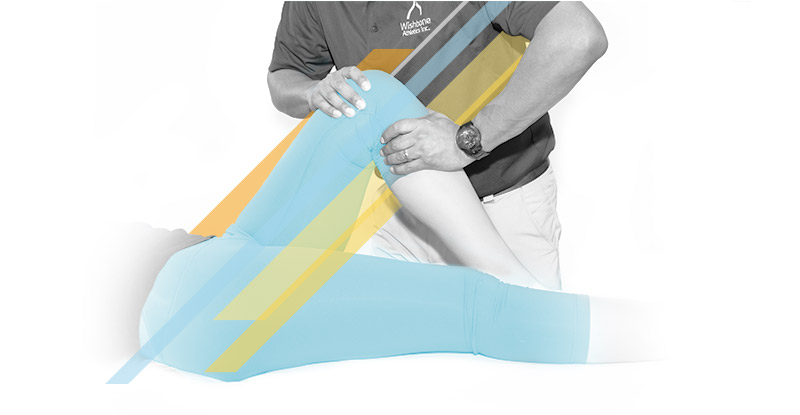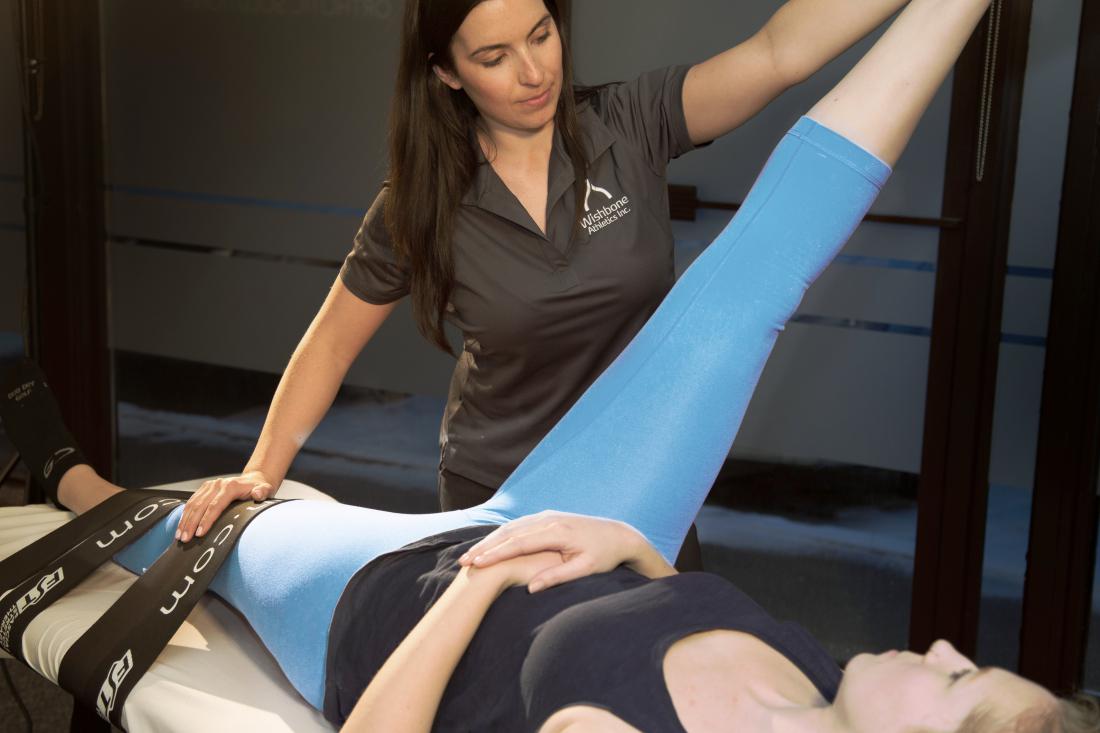Pelvic Floor Physiotherapy for Relief & Recovery
Pelvic floor physiotherapy is a specialized form of physiotherapy that focuses on the muscles, ligaments, and connective tissues in the pelvic region. It can be an effective treatment for pelvic pain, incontinence, postpartum recovery, sexual dysfunction and more, and is often covered by extended health insurance plans.


Certified & Experienced Therapist
At Wishbone Athletics, our pelvic floor physiotherapist is a registered professional with advanced post-graduate training, including Level 2 pelvic health certification. We provide one-on-one, private care to help you reduce discomfort, restore function, and feel confident in your body again.
Your Treatment
Your first visit begins with a detailed conversation about your symptoms, medical history, and goals for treatment. From there, your therapist will assess your breathing, posture, movement patterns, and the function of surrounding muscle groups, including your core, hips, and spine.
If you're comfortable, the therapist may perform an internal exam to better understand how your pelvic floor is working. This is always optional and done only with your full consent. Many assessments can be done externally through breath work, movement, and other hands-on techniques.
Is pelvic floor physio effective?
Yes! The muscles and connective tissues of the pelvic floor respond to treatment just like any other part of the body. With targeted strengthening, stretching, manual therapy, and education, most people see significant improvements in symptoms and quality of life. And it's ok to be nervous! Your therapist will work with you and ensure a tailored treatment plan to meet your unique needs and goals, with your comfort, safety, and consent always our top priorities.
Request Your Assessment
What conditions does pelvic floor physio help with?
Pelvic floor physiotherapy can help with a wide range of conditions, including:
- Pregnancy and postpartum changes
- Abdominal muscle separation (diastasis recti)
- Urinary or fecal incontinence
- Pelvic organ prolapse
- Pelvic girdle or low back pain
- Pain or discomfort during sex
- Weakness or tension in the pelvic floor
- Pudendal neuralgia
- Constipation or straining
It can also support a more comfortable pregnancy, help prepare your body for labour, and reduce the risk of complications like prolapse or incontinence after childbirth.
